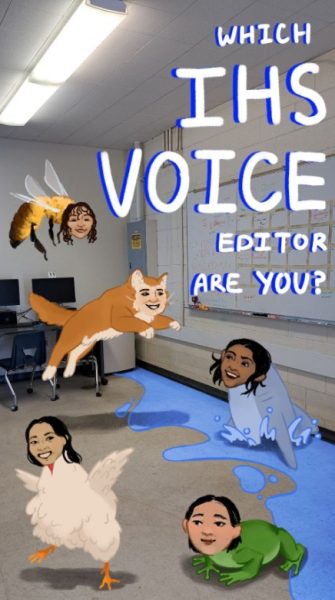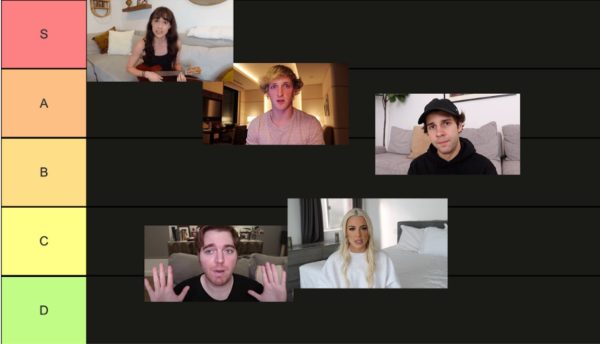IHS Teens Forget How To Verbally Communicate

Two Irvington students using body language to discuss their classes as a result of being unable to speak.
A new scientific study by Irvington High School’s AP Bio Team showed significant declines in student mental health and social skills as a result of the COVID-19 pandemic. With the district deciding to completely reopen schools by tomorrow, this spells disaster for all teenagers across IHS.
As of February 30th, a quarter of IHS teens are terrified of showing their face in public, likely bolstered by the fact that turning off cameras during zoom classes is such a common practice. Now one can often find students wearing 20 surgical masks over their heads, citing that they’re preventing the spread of coronavirus, when in reality it’s due to the fact that they cannot allow even the shape of their nose to be identified. Side effects of this mask arrangement include asphyxiation and temporary blindness, but many students believe that these extents are worth going to in order to ease their deeply rooted insecurities. Philease Hulp (11), a student who regularly engages in turning off his Zoom camera, explained how he developed his insecurities.
“Shit dude, it’s a slippery slope,” said Hulp. “One day you’re turning off your camera because you don’t want people seeing that you’re eating breakfast. Next moment you’re terrified of showing your face in public without a ski mask. Next moment you can’t look at someone without cowering in fear and pissing your pants.”
Hulp now spends his days curled up in his bed and playing Mobile Legends. If one looks into his curtain-drawn room, there’s usually only one light source, that being his phone underneath his sheets.
The AP Bio team further discovered that a majority of IHS teens are now deemed “incompetent” in social interaction. Exposure to extremely awkward breakout sessions has forced around 60% of students to have significant declines in social functions such as casual conversation and an increase in awkward instances such as staring deeply into another student’s eyes without saying a word.
Interestingly enough, around 2% have increased their ability to squirm their way out of awkward situations in-person, mostly by claiming that they are lagging and unable to hear the other person.
Whether these gains or losses in social ability are temporary is unclear, but they are certainly concerning.
Scientists also found that a very small but significant portion of teens (~0.5%), have completely lost the ability to verbally communicate. When reintroduced back into an environment with sufficient levels of human interaction, these teens still did not regain the ability to talk. Scientists are not completely sure why, but point to lack of brain usage in verbal communication as the issue. Kyle Kantalk (9), a student who once won a Speech competition at the state level, has now resorted to using monkey-like sounds to communicate. Kantalk shared his opinions on the ordeal.
“mnEuuuGGH$$###### e@EeeeeeeE.”
As Kyle describes, this situation is truly disheartening.






